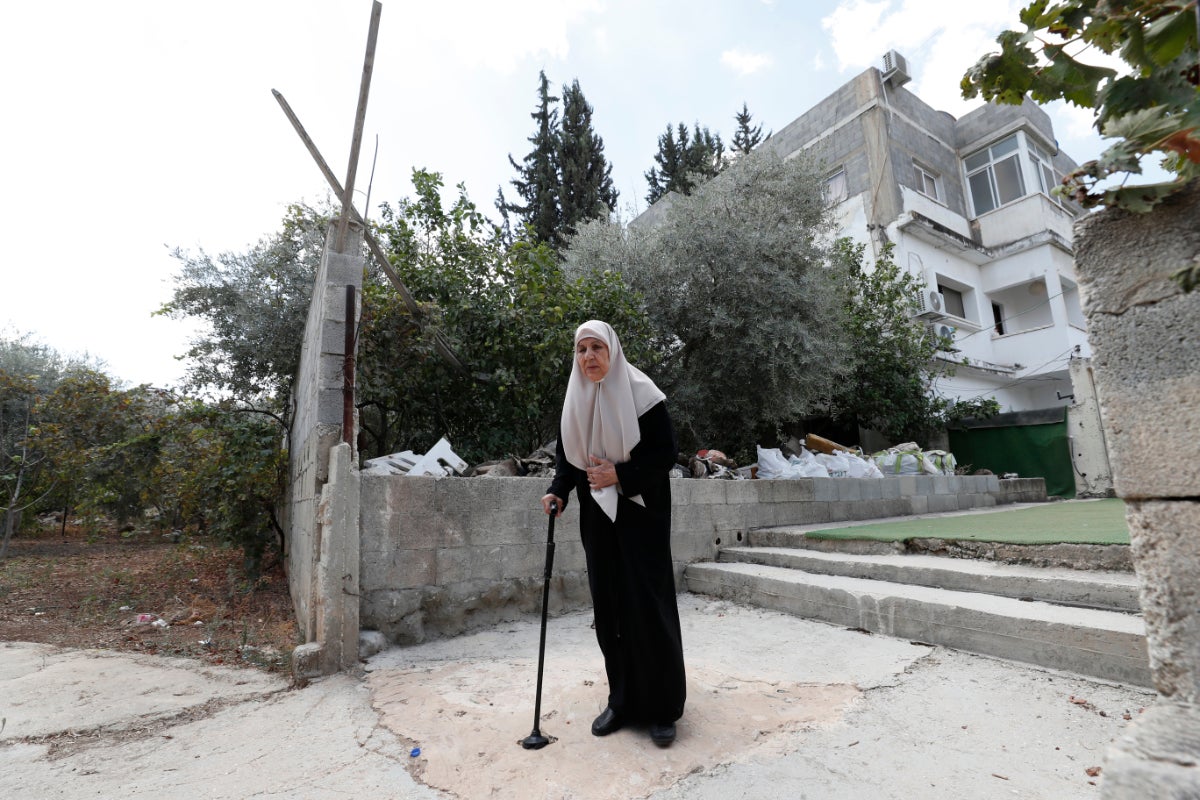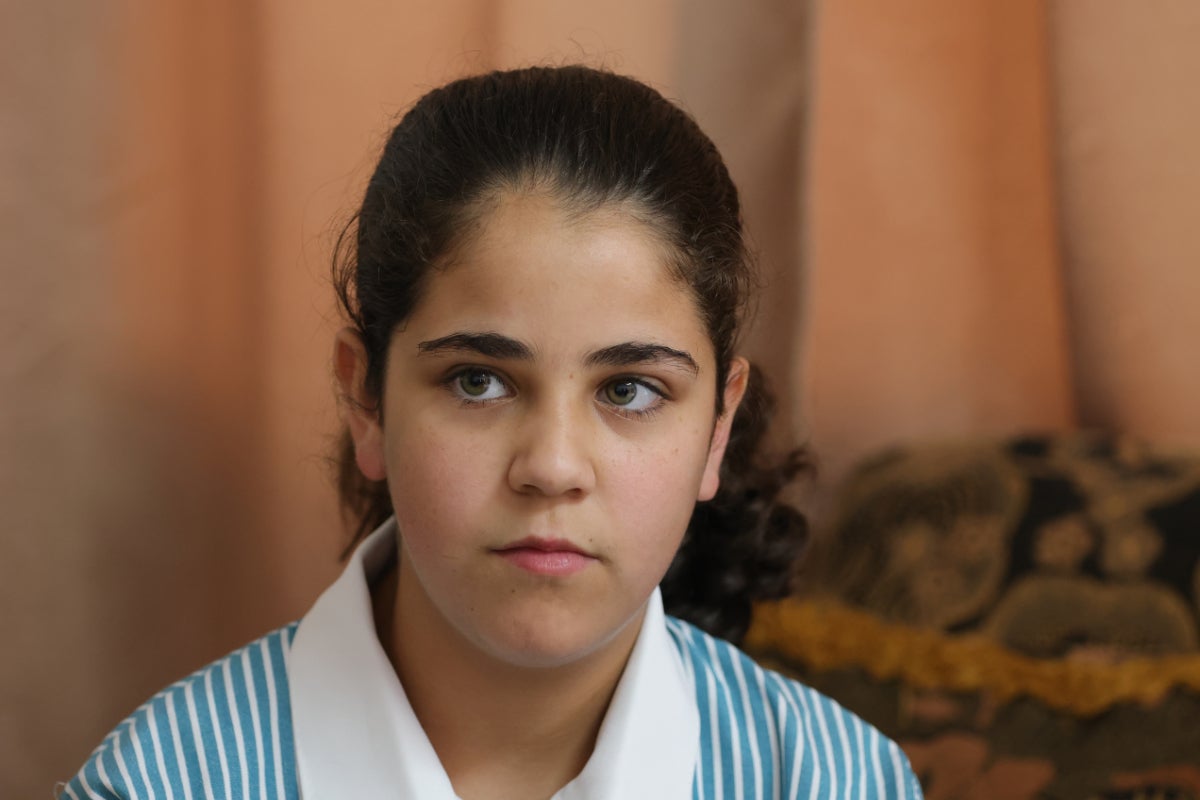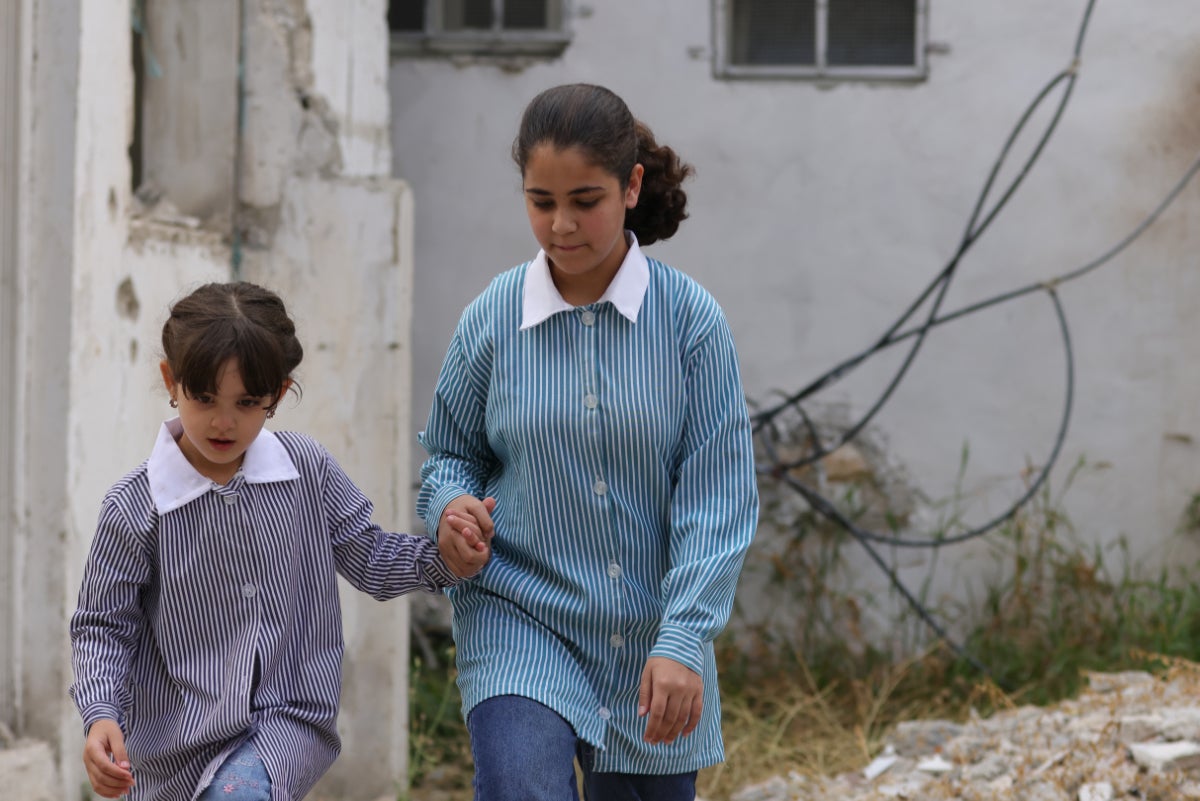Generations of Pain: The Unbreakable Strength of Palestinian Women – Voices from the West Bank
Date:

In the West Bank, three generations of Palestinian women share a common story of unrelenting hardship, shaped by decades of war and displacement. UN Women recently spoke to Wafeeka, Kafa, and Jwan – three women profoundly affected by ongoing conflicts. From the Nakba of 1948 to the first and second Intifadas, and now the continuous military operations, their experiences reveal a painful cycle of trauma passed from grandmother to mother to granddaughter. Yet, despite their suffering, these women remain steadfast, embodying the strength and determination of all Palestinian women caught in the crossfire of war.
Wafeeka Abu Ali, 82 years old, begins telling her story: “I was born in Al Kafreen near Haifa. I was only five when we were forced to leave our home in 1948. That night is seared into my memory—walking for hours with my mother, father, sister, and three brothers, seeking refuge from the darkness that fell over us. We reached Um Al Fahem in the Haifa District and built a makeshift tent. But when winter came, the cold was a vicious enemy. My father searched desperately for a house to rent, and we lived there for nearly a year before being herded into Al Janzoor refugee camp, in Jenin district.”
“Hope kept us going, the hope of one day returning to our land. But with each passing day, that hope grew thinner. We endured unbearable conditions—snowstorms with nothing but fragile tents to shield us, and food that was barely enough to survive. When it snowed, the weight of the cold, wet snow would crush the tents, leaving people exposed, vulnerable. We were moved yet again, this time to Al Fara camp, located in a rural area, 17 kilometers north-east of Nablus. That’s where our 'new' life began.”
“In 1967, war struck again, displacing us once more, forcing us to hide in caves, as the deafening sounds of gunfire drew nearer and nearer. By then I was married, with four daughters—one was just a newborn. The fear during those days was beyond words, but even that dread cannot compare to what I feel now. Military operations continue to haunt us, homes are leveled, lives are shattered. Part of my house was destroyed when soldiers bombed my neighbor’s home. I live in constant fear—for my children, for myself, for the future. This fear and displacement have been my constant companions for nearly eight decades. I carry the weight of all I’ve lost, the unfulfilled dream of returning to my home in Haifa.”

Kafa Abu Harb, 49 years old, a widow and mother of three sons and a daughter, shares her story. “Like so many others, my life has been consumed by the unending trauma of war. I was only 13 when the first Intifada broke out in 1987. I remember the terror in our hearts as students traveling to Tulkarem from Noor Shams camp northern West Bank. Each day we feared we wouldn’t make it back home. Military operations forced us to flee school, to run for our lives. I can still hear the pounding of my heart, and I can still hear the sounds of destruction as Israeli forces shattered everything inside our home.”
“During the first Intifada, we endured several curfews, some lasting more than 20 days. We were trapped, and food became scarce. Despite the constant threat, I and some relatives (females only- less risk) walked for hours to find something to eat, knowing that we could be killed at any moment. The second Intifada was no different. By then, I was married, living in Fara’a camp. Bombings and raids destroyed any semblance of peace, and I feared for my children’s lives. Seeking refuge in my mother’s home, I thought we’d be safer. But even there, safety was just an illusion.”
“Fear is a shadow that never leaves us. Soldiers invade our homes, stripping us of our privacy, interrogating us, stealing our children in the dead of night with no reason or warrant. This is the reality we live. One of my sons remains imprisoned, without charge, without trial. How can we endure this? How can the world stand by in silence as we are stripped of our dignity, our humanity? We are not asking for much—just the right to live in peace, to breathe without fear. Palestinian women have borne the brunt of this suffering, yet we are still here. We are still standing. Our strength is all we have left.”

Jwan Hamdan, Wafeeka’s granddaughter, is only 13 years old, but her young life is already shaped by war. Every military operation feels like the end of the world for her. “I fear for my education, for my future,” she says. She recalls playing at her grandfather’s house when a military strike hit nearby. The bombardments shook her to her core. For three long days, she huddled in fear, her childhood innocence shattered. Schooling has become a distant hope, and the psychological toll weighs heavily on her young mind. “I think of my grandmother’s stories of the Nakba in 1948, of entire generations displaced, their dreams turned to dust, and this is continuing everyday” she says.
Jwan dreams of becoming a lawyer to defend her people. But in the midst of war, her dream feels fragile, like it could be snatched away at any moment. “War has stolen the futures of so many children in Gaza, and now we are also losing or future in the West Bank” says Jwan, and she knows that her education—her future—hangs by a thread. Despite this, she holds on to hope - fragile, but enough to dream that peace will come, and she can pursue her dreams.
Three generations of women—Wafeeka, Kafa, and Jwan—have carried the weight of war, displacement, and loss. Their scars run deep, but they remain unbroken. Their strength defies the unimaginable suffering they have endured. Palestinian women have shouldered more than their share of pain, but they continue to dream, to fight, and to hope. The world cannot remain silent any longer. It is time to listen to their cries—for justice, for dignity, for a life free from fear. It is time for the world to act.
Read in Arabic.